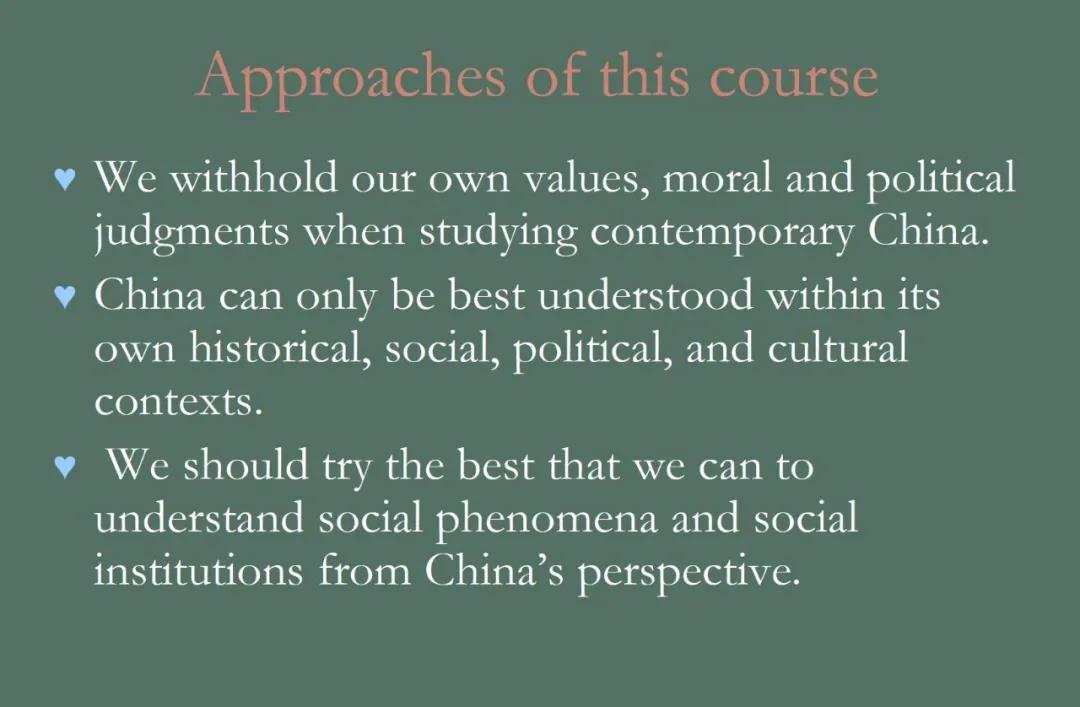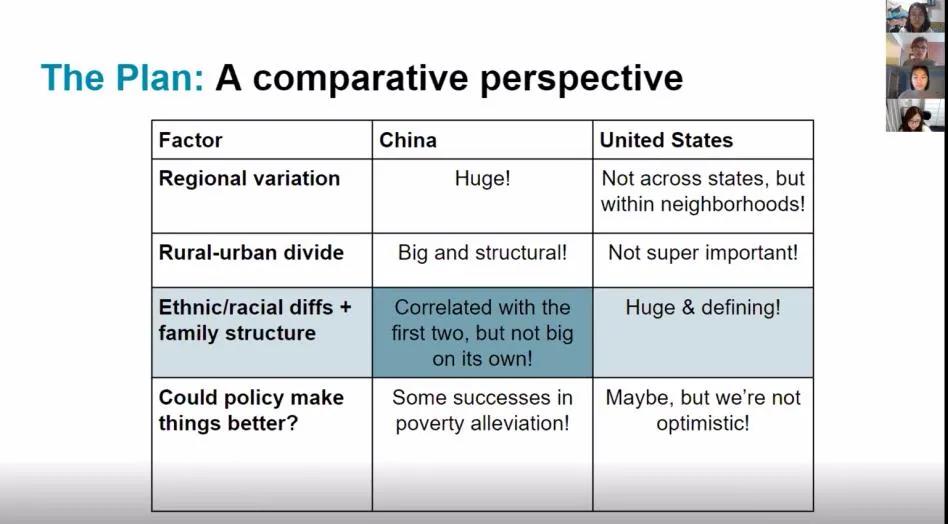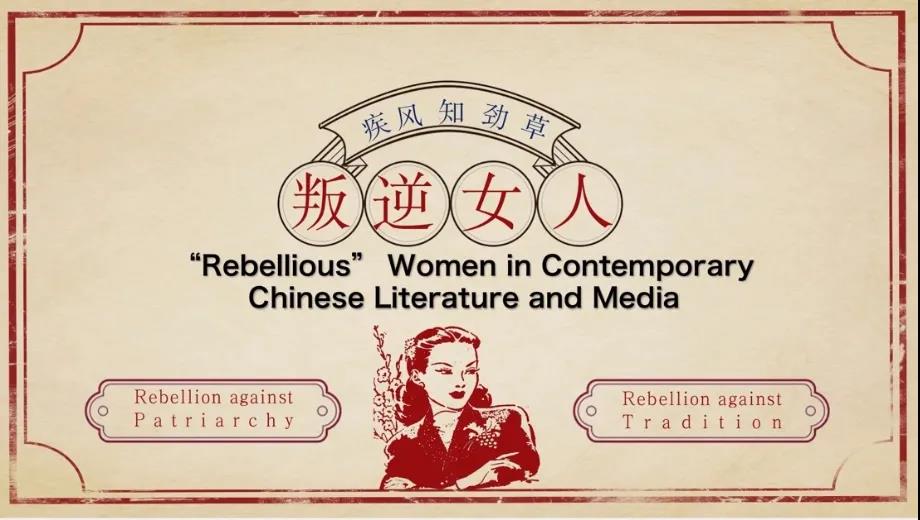The Yenching Academy's master's program in China Studies possesses six research areas: Law and Society, Politics and International Relations, Economics and Management, Literature and Culture, History and Archaeology, and Philosophy and Religion. Every concentration features distinctly designed courses by which Yenching Scholars can study China-related issues.
Aiming to forge in our Scholars a noble sense of social equity and justice, the Law and Society area encourage students to wisely utilize available resources in their exploration of social development law. In the meanwhile, the curriculum helps our Scholars build rigorous scholarship, drawing on statistics and law. Thus, Junzi(君子) must pursue professional depth while holding a broad mind.
In the fall semester of the 2020–21 academic year, Law and Society area opened three courses, namely "Legal Dynamics of Chinese Commerce and Society" "Contemporary Chinese Society", and "Women in Contemporary China". The informative courses encourage students to take sociological and jurisprudent methodologies into consideration when researching and thinking. In that, students are inspired to acquire the sociological imagination that works between "personal troubles of milieu" and "public issues of social structure" and to resiliently "think like a fox".
Yu Jia, Associate Professor at the Center for Social Research, Peking University, prepared in-depth lectures about modern China's social phenomena and social institutions through particular subjects in "Contemporary Chinese Society". Prof. Yu made clear in the first class her philosophy of this course: "We withhold our values, moral and political judgments when studying contemporary China. We can best understand China only within its historical, social, political, and cultural contexts."

Bozhidar Stankovikj from North Macedonia graduated from Princeton's Woodrow Wilson School. Although he had known little about present-day Chinese society before attending the course, he learned many vital parts of Chinese society, such as hukou (household registration) and danwei (workplace unit) systems, family structure, demographic features and social strata, through class discussions and reading materials. Bozhidar and Maya Bian from the U.S. gave a presentation on income inequality. As they both studied in American universities, they read and collected income data of the U.S. and made an informative presentation comparing income inequalities in China and the U.S.
Like other courses, "Contemporary Chinese Society" must deal with new difficulties due to the COVID-19 pandemic. Therefore, the academic Affairs Office and Wei Yuhuai, TA to the course and 2019 Yenching Scholar from China, arranged classroom discussions and online panels on our Canvas platform to facilitate scholars' learning experience, especially those in difficult time zones.

Associate Professor Lou Jianbo and Professor Guo Li from Law School, Peking University, taught the course "Legal Dynamics of Chinese Commerce and Society". Prof. Lou chaired the first module, introducing the legal system in contemporary China, such as structure, formulation and enforcement of the law, and the development dynamics of China's legal system. Prof. Guo chaired the second module, introducing financial law and practice in China, such as stock market, shadow banking and variable interest entity (VIE). Then, step by step, Prof. Guo illustrated the dynamic balance between financial regulation and financial innovation in China. Finally, the third module of the course centered on the WTO Moot Court practice featuring issues like China's complaint in 2016 against the U.S. and the European Union of their negation of China's market economy status (MES). The students formed four groups playing the panel, China, the U.S. and the E.U., and held debates over the dispute under the guidance of Profs. Guo Li, Lou Jianbo, Chen Ruoying and Li Huxing laoshi. Unlike presentations, the Moot Court module required more reading and longer time for preparation. Therefore, students must collaborate for this module.
Lin Yuhong, with a bachelor's degree in English literature and linguistics from Sun Yat-sen University, was the only Chinese student attending the "Legal Dynamics of Chinese Commerce and Society" class. Despite not having a background in law, she enjoyed the course and acquired new knowledge and approaches. She had this to say: "I'm grateful to Julia Cai and Calvin Spanbauer. They were my colleagues in the course and more like my instructors. I had no background in law study and was quite slow in reading sources in English. But they led me through to understand the complicated case, step by step."
Hadley DeBello received her B.A. from Harvard College. Her ultimate goal is to work as a cultural property lawyer. She liked the Moot Court module and found it a superb opportunity to reflect on how China could conform to international laws and regulations and China's role in the WTO. Hadley was on the E.U. group to demonstrate why China was thought to be a non-market economy. Though they reside in the U.S., Germany and China, the group members brainstormed over Zoom, discussing their arguments and predicting possible ideas and strategies of the China group. For Hadley, it was challenging but fascinating.

Profs. Lou and Guo, the TAs Lucas Padilha (2019 Yenching Scholar from Brazil) and Ye Yimeng (student from Law School, Peking University), and the Academic Affairs Office worked hard on an online design for the course due to the epidemic. In addition, the professors gave instructions for paper writing every week on Zoom.
In the course "Women in Contemporary China", Professor Li Yingtao from the School of International Relations, Beijing Foreign Studies University, focused on the past and present issues confronting Chinese women from a gender perspective. The seminar-based course encouraged students to take diverse viewpoints toward gender issues in China with critical thinking. Over the semester, students explored women-related political, economic, cultural, social and family matters in China, drawing on historical events, documents and key figures in women's movements in China. They also looked at China's efforts and challenges for gender equality.
Prof. Li and her TA, Thi Thuy Duong Pham, 2019 Yenching Scholar from Vietnam, worked out a new structure for online teaching. A newly added section to the course, "Women and COVID-19 Pandemic", allowed students to see the social impacts of the pandemic from a gender lens. Also, Prof. Li invited Mdm. Cai Yiping from the Development Alternatives with Women for a New Era (DAWN) to give a lecture on understanding women's movements in contemporary China from an NGO perspective. Students shared their feelings and observations and raised inspiring questions.

In addition, Thi Thuy Duong Pham invited Aika Sato (Japan) and Yan Zhaoyi (China), both from the 2019 Cohort, to talk about their studies in the field. Thi Thuy Duong Pham thought it a good way of inter-cohort communication.
The Academy's Law and Society area builds up an interdisciplinary platform for students from different backgrounds to understand present-day Chinese society from a comparative perspective and forge academic and personal development capabilities.